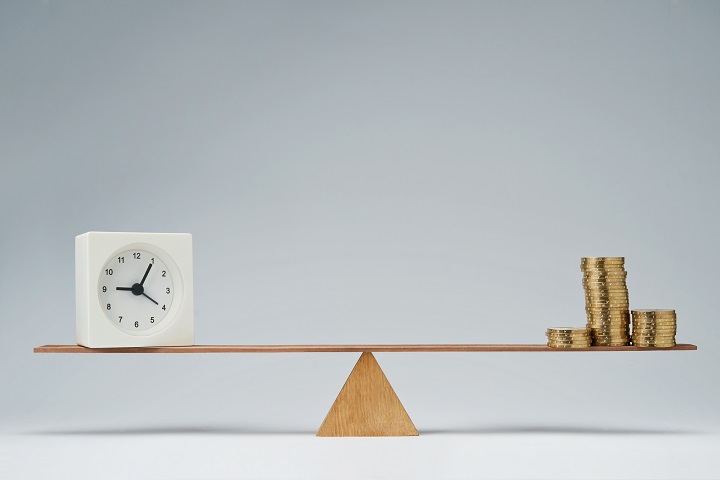
The following is an article discussing Virginia’s laws on slip and fall accidents. The article will also discuss the time frame for filing a claim for injuries that resulted from the slip and fall.
What is the time frame for filing a slip and fall lawsuit in Virginia?
Anyone that is considering filing a slip and fall claim in Virginia should have a good and thorough understanding of the Virginia legal system regarding slip and falls on dangerous or defective property. Understanding the statute of limitations for personal injury claims is especially important because the statute of limitations will affect the outcome of the claim, including any monetary compensation you may be eligible to receive.
Firstly, a statute of limitation is a law that restricts how long someone has to file a claim against another person or business. Statute of limitations vary by state. The limitation also varies depending on the offense claimed. There are three different statute of limitations that could apply to slip and fall injuries that occur on damaged or defective properties in Virginia.
Virginia Law on Slip and Falls
Pursuant to Virginia Code 8.01-243, anyone who is injured in a slip and fall has two years to file a claim in a Virginia civil court. The two year time limit starts on the date of the slip and fall accident. If a slip and fall victim would like to file a claim over property damage that occurred during the slip and fall, that person will have five years to file a claim. Property damage may include damage to personal items such as clothing and jewelry.
In rare and unfortunate circumstances a slip and fall may lead to the death of the party involved. Pursuant to Virginia Code 8.01.244, the family or representative of anyone who suffered a fatal injury due to a slip and fall will have two years to file a wrongful death claim.
All Claims Are Unique
All slip and fall cases are unique. Regardless of the specific facts of a particular case, the outcome will likely come down to the plaintiff’s ability to prove that the defendant did not take reasonable steps to ensure that their property was safe. The plaintiff must clearly prove that the defendant’s negligence resulted in the slip and fall. It is also important to highlight that the slip and fall in question must have resulted in a serious injury due to hazardous conditions located on the property. In most cases, the more explicit it is that the defendant’s property was hazardous, the easier it is to prove that the property owner did not take reasonable steps to ensure that an accident would not occur on their property.
The slip and fall victim will also have to show that the property owner had sufficient notice of the hazardous condition on their property. This part will require research and fact finding. It is important to know how long the hazardous condition was on the property and how long the property owners actually knew about the hazardous condition.
Contributory Negligence
As a defense, a defendant may try to insinuate that a plaintiff caused his or her own injuries due to their own negligence. In anticipation of this, a plaintiff should be ready to prove that he or she did not behave in a manner that contributed to their own injuries. However, if a plaintiff was aware of an open and obvious danger, but preceded without caution, it is more likely that a court will find that a plaintiff contributed to his or her own negligence.
Slip and Fall on Government Property
The Virginia statute of limitations discussed above applies to potential lawsuits filed against owners of both private and commercial property. This includes homes and businesses. Different codes will apply if someone suffered a slip and fall on government property. If you slip and fall on government property, the governmental entity will be held liable if the entity or an employee’s negligence caused your slip and fall. Like slip and falls that occur on private or commercial property, a plaintiff will have to prove that the entity was aware or should have been aware of the hazardous condition, but did not take reasonable steps to improve the condition before the accident.
Filing a Lawsuit After the Statute of Limitations Expires
If you file your lawsuit after the statute of limitations has passed, a defendant has the right to have your claim against them dismissed. If the court grants a defendant’s motion, you may not have another chance to sue a defendant for your slip and fall. If you think that the statute of limitations on your slip and fall has expired, you should consult a personal injury attorney who is familiar with Virginia laws.
Your attorney may find that the statute of limitations, as it applies in your case, has paused for some reason. If that is the case, your attorney should argue Virginia’s laws on exceptions to the statute of limitations as a reason for allowing your lawsuit to continue.
Contact Experienced Legal Representation
Please note that not every slip and fall accident has to result in filing a lawsuit. It is best to try and resolve slip and fall accidents through settlement. This method usually saves time, money and resources. However, if settlement does not look possible, make sure that you keep track of your time frame for filing a lawsuit. If you have any questions regarding a slip and fall accident that you or a family member has suffered please contact The Brown Firm PLLC before your statute of limitations runs out.
Useful Tips
Before consulting an attorney please make sure that you compile a detailed record concerning the date of the slip and fall, the hazardous condition that caused your injury, what injuries you sustained and any proof that the potential defendant should have been aware of the hazard on their property.

